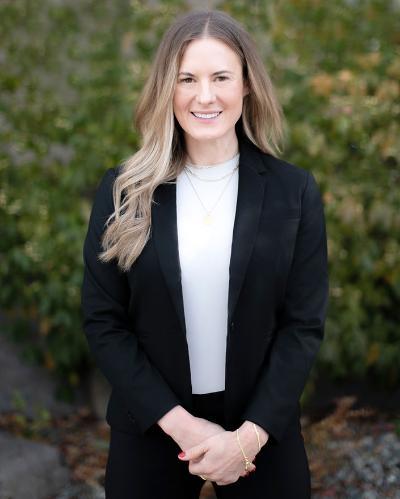
Image Copyright 2022 by Mursion, Inc.
Students in the LMU School of Education’s Institute for School Leadership and Administration (ISLA) program are getting a preview of the often-vexing scenarios they will inevitably navigate in their roles as educational leaders—even if the “people” they’re interacting with are avatars, and the setting is viewed through a computer screen, made life-like through Mixed Reality Simulation (MRS) technology.
As a pilot project in the three-semester master’s-level leadership series taught by Manuel Ponce Jr., ISLA director, the students practice their leadership skills across a variety of settings with teachers, parents, and other leaders. In their first semester, they attend a team meeting in their role as a new principal, where the goal is to build relationships with their teachers, foster collaboration, and plan activities for a start-of-the-year retreat. At another meeting, they try to win over a veteran teacher who is skeptical about their vision. At a third, they approach a teacher whose instruction is subpar, outlining a proposed improvement plan.
The scenarios are nuanced, with no easy solutions. They unfold in unpredictable ways—sometimes involving challenging personalities or frayed emotions, always requiring effective listening and communication skills. “When you’re new to these types of situations, you’re bound to make mistakes,” says Ashley Ireland, instructional director for simulated learning for SOE’s Innovation in Digital Education and Leadership (iDEAL) Institute and head of the school’s far-reaching MRS initiative. “Through these simulations, our candidates are able to learn from those early mistakes because we've moved them into the teaching and preparation environment—with the ability to hit the ‘pause’ button to allow for feedback and reflection.”

As of fall 2022, all SOE departments are incorporating MRS into their curricula. The technology allows students to take dry runs through the types of experiences they’ll face at work by immersing them in virtual educational environments featuring life-like avatars of students, principals, parents, and teachers, with coaching and feedback from peers and instructors. An early adopter of the technology, SOE has expanded its use of simulation exponentially in the past year, Ireland says, with pilots of simulation sequences in its teacher preparation, educational leadership, and school psychology programs.
For Ponce’s leadership series, the students begin with big-picture content before moving toward more specific situations. In the second semester, the principal takes a meeting with a parent who has come in to complain about the very teacher whose performance had been targeted for improvement. “You have to bond with and address the concerns of this parent, putting the student’s best interest at the forefront while not throwing the teacher under the bus,” Ireland says. “It can be a tightrope act.”
The leadership students also use MRS to go through the experience of a principal interview. By the third semester, they undertake an Individualized Education Program (IEP) meeting that brings in SOE students from other programs as general and special education teachers and school psychologists. Through the simulation, SOE's leadership candidates play the role of principal in the IEP setting, helping to mediate a difficult situation in which divorced parents disagree on the level of support their child should receive.
MRS is also part of the core pedagogy for SOE’s teacher preparation programs. Teacher candidates participate in a series of simulations designed to prepare them for effectively managing the classroom environment, starting with a “Getting to Know You” session with their students and then moving to more challenging scenarios, such as contentious parent-teacher conferences, IEPs, and situations in which, as mandated reporters, their skills at drawing out a student who has been abused at home are put to the test.
During all of the simulations, a key component involves what Ireland calls “the brain” — the peers who collectively guide the student in the “action seat.” “The learning during these sessions is not so much what happens in the rehearsal, but the chance to collaborate on how to handle the challenges that come up,” Ireland says. “We pause and work together to unpack what just happened and where to go from there. I’m not interested in seeing the student in the action seat improvising. We’re constantly bringing in different perspectives from ‘the brain,’ and then the student in the action seat implements the agreed-upon approach.”
Ireland says the simulation exercises help to strengthen students’ ability to reflect in advance about how certain words or actions are likely to go over in the classroom or in a school leadership setting, what she dubs “preflection.” She recalls her own experience as a teacher who started her job on an emergency credential. “I made so many mistakes,” she says. “With these simulations, our candidates can make those mistakes during training—without affecting real students. Then they can reflect on what they would do differently next time, and be more likely to succeed when those situations come up in the future.”